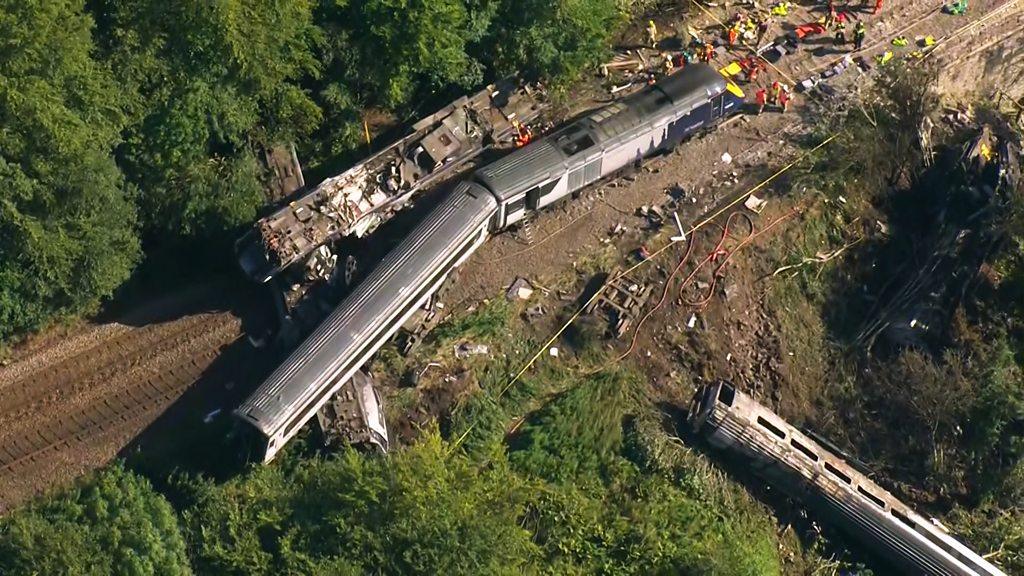Stonehaven derailment: Train had reached 72.8mph
- Published
Landslip train had reached almost 73mph
The train which derailed in Aberdeenshire, leaving three men dead, had reached almost 73mph before it hit a landslip, a report has said.
Driver Brett McCullough, 45, conductor Donald Dinnie, 58, and passenger Christopher Stuchbury, 62, died near Stonehaven. Six others were injured.
The train derailed following heavy rain last week.
An initial report by the Rail Accident Investigation Branch, external said the train was travelling within the speed limit.
The RAIB said it reached 72.8 mph (117.1 km/h) and this was "within the maximum permitted of 75 mph (120 km/h) on this stretch of line".
The report confirms that the accident took place at about 09:38, just a few minutes before the first reports reached the emergency services.
Investigators said all six vehicles of the train derailed after it struck the landslip 1.4 miles north-east of Carmont in Aberdeenshire.
Nine people were on board, a crew of three and six passengers.
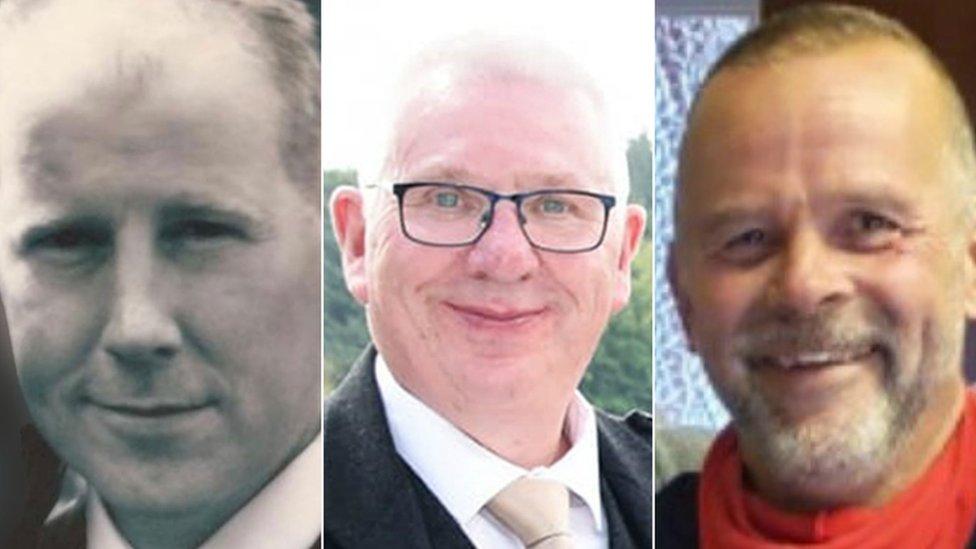
Brett McCullough, Donald Dinnie and Chris Stuchbury died after the train left the tracks
Describing conditions at the time of the crash, the RAIB said there had been thunderstorms in the area, with 52mm (2in) of rain falling within the space of four hours. This is about 70% of the total monthly rainfall which could be expected in Aberdeenshire in August.
The high speed train - with two power cars and four carriages - had been operating the 06:38 service from Aberdeen to Glasgow.
It was initially stopped at Carmont at 06:59, after a northbound train reported a landslip further south, on the section of track between Carmont and Laurencekirk.
After sitting at Carmont for more than two hours, it was decided to move the train back to Stonehaven, to allow passengers to get off.
The driver was given permission to move north at 09:25, moving at 5mph initially as it crossed on to the northbound track, but then accelerating to 72.8mph.
The investigators said that, after it was derailed by the landslip, the train continued for 77 yards (70 metres) before hitting the parapet of a bridge.
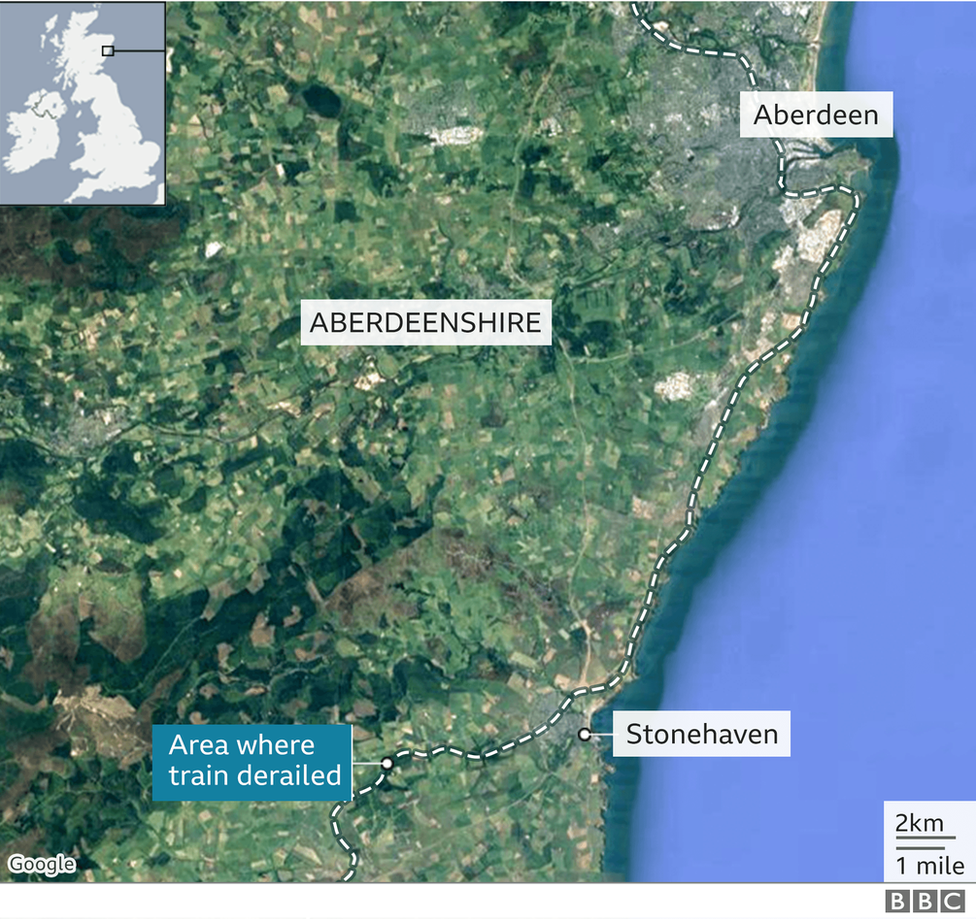
The train came off the tracks as it attempted to return to Stonehaven
The report states: "The leading power car continued most of the way over the bridge and fell from the railway down a wooded embankment, as did the third passenger carriage. The first passenger carriage came to rest on its roof, having rotated to be almost at right angles to the track.
"The second passenger carriage also overturned on to its roof and came to rest on the first carriage. The fourth passenger carriage remained upright and attached to the rear power car; it also came to rest on the first carriage. All wheelsets of the rear power car derailed, but it remained upright."
'Thoughts remain with families'
The RAIB says its detailed investigation will include:
The sequence of events and the actions of those involved
The operating procedures applied
The management of earthworks and drainage in this area, including recent inspections and risk assessments
The general management of earthworks and drainage and associated procedures designed to manage the risk of extreme weather events
The behaviour of the train during, and following the derailment
The consequences of the derailment and a review of the damage caused to the rolling stock
The investigation carried out by the RAIB is independent of parallel work being carried out by the rail industry, and of the investigation being undertaken by the police under the instruction of the Lord Advocate.
Network Rail chief executive Andrew Haines said: "My thoughts remain with the families and friends of Brett, Donald and Christopher, and everybody else affected by the tragic events of last week. Our railway family is still in shock.
"We are doing everything we can to support ongoing investigations so that we can properly establish the circumstances that led to the derailment, and to understand what can be done to prevent such a tragedy again."


A one-minute silence was held at railway stations on Wednesday across the UK to honour the three men killed.
Family members of the men who lost their lives were among those who gathered at Aberdeen station.
UK Transport Minister Grant Shapps has asked Network Rail to produce an interim report by 1 September.
- Published19 August 2020
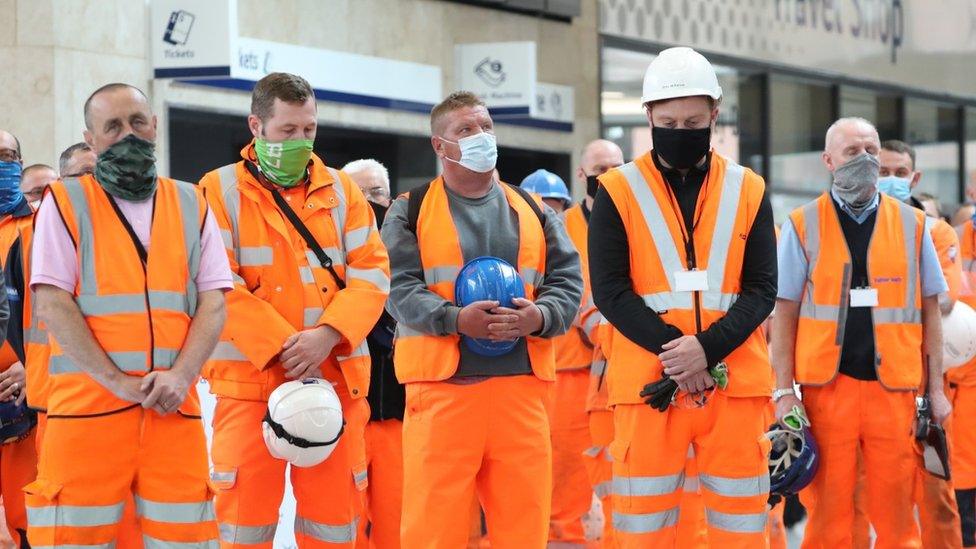
- Published19 August 2020
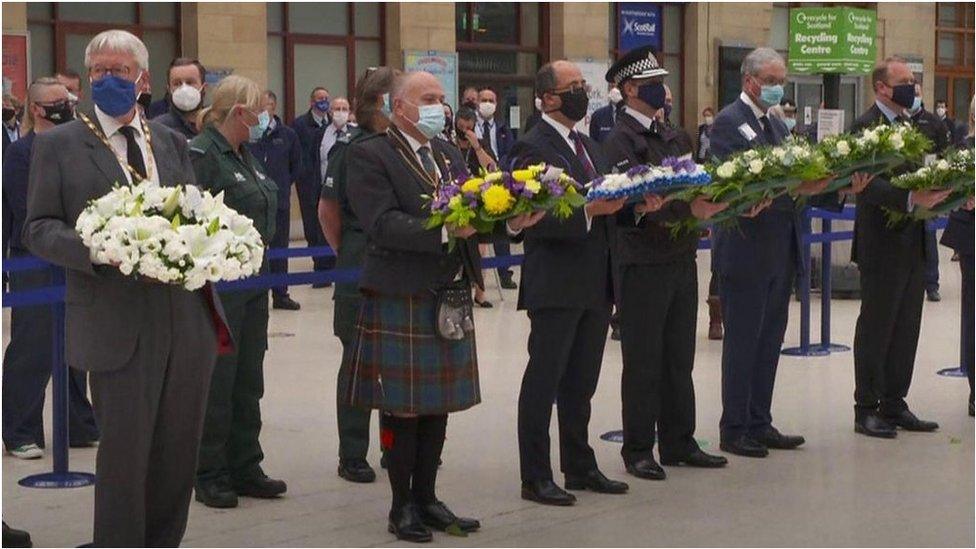
- Published17 August 2020
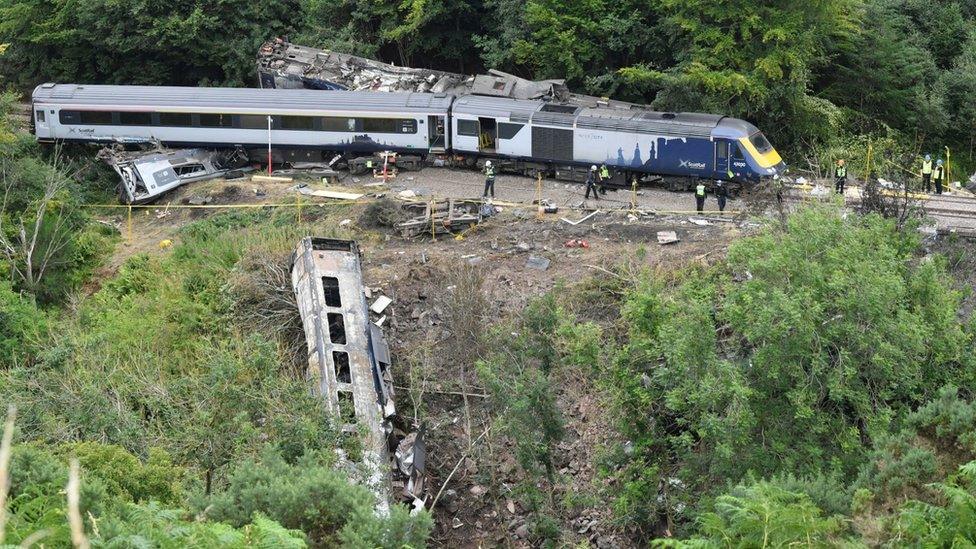
- Published16 August 2020

- Published14 August 2020

- Published14 August 2020
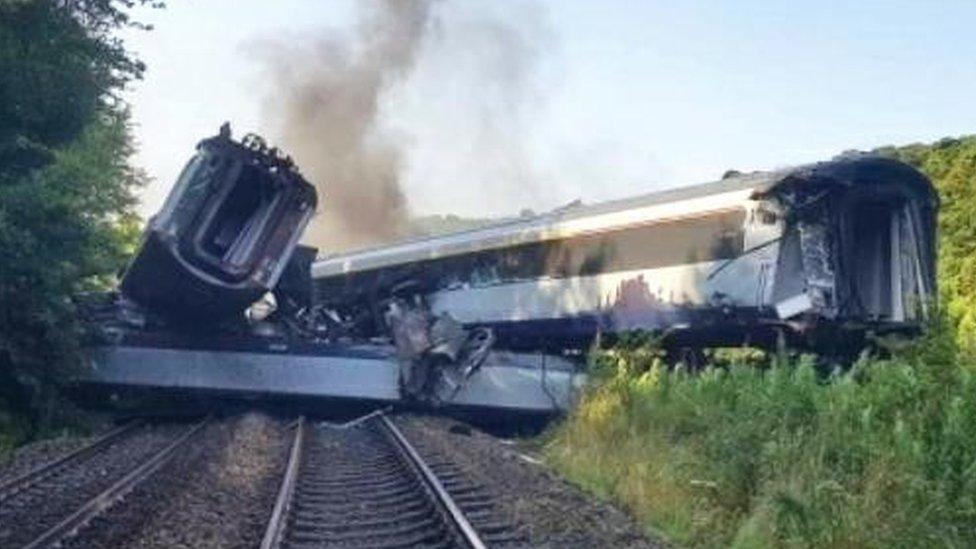
- Published13 August 2020
